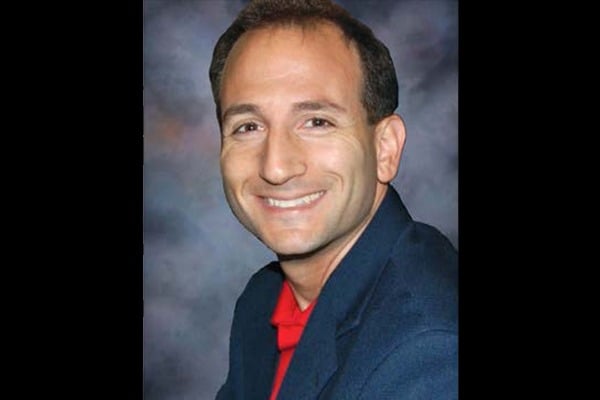Meet Joshua Doloff, assistant professor of BME

Joshua Doloff joined the Johns Hopkins Department of Biomedical Engineering as an assistant professor in November 2018. In this interview, Doloff, who has an interest in technology and biology, describes his eagerness to build research collaborations and provide mentorship to students. He also discusses his “eureka moments,” the research he plans to conduct at Hopkins, and the future of engineering.
What made you pursue a career in engineering?
As a child, I was always drawn to the technical side of things, from pulling apart gadgets to wondering about internal componentry. In addition, having a twin brother and being curious about various biological concepts (the simplest being nature vs. nurture), led me to dabble in anatomy, physiology, and AP biology classes in high school. Over time, it become clear that I was interested in the intersection between technology and living systems, so focusing on biomedical engineering was a natural fit.
Why did you choose Johns Hopkins BME, and what are you looking forward to most?
The status, history, and community of Hopkins BME speak for themselves. It was an honor to be invited to join such a prestigious and accomplished organization. I am looking forward to forming research collaborations, not only within Hopkins BME, but also within the world-famous Johns Hopkins Hospital. This, of course, includes scholarship and the ability to give back in the form of education and mentorship to the student body.
Can you give me a brief overview of your current research?
My research will focus on systematically breaking down how the body’s immune system works in various capacities such as cancer, autoimmunity (i.e. type 1 diabetes), and transplantation/regenerative medicine, in order to immunoengineer new therapeutic solutions.
Have you ever experienced a “eureka moment?”
That’s a great question. I think I have had two. The first “eureka moment” occurred during my PhD work in the realm of cancer immunology. We realized that by changing the way a chemotherapeutic agent, even one that was deemed immunosuppressive by traditional clinical standards, was administered, one could instead engage the body’s own immune system to repeatedly attack a tumor. The second “eureka moment” happened during my postdoc, when I helped our team identify the core required immunobiology as well as associated next-generation drug targets involved in immune-mediated rejection of large biomedical device implant systems. More so, work with an amazing friend, colleague, and chemist, allowed us to take compounds identified in that screen and package them as large crystalline monoliths for localized, targeted, and long-term controlled drug release for a period of many months to years.
What do you consider your biggest research accomplishment so far?
The two “eureka moments” I mentioned were great accomplishments. Also, the related opportunity of helping to develop a number of important biocompatibility technologies, which have been licensed by a recent lab startup. It is our hope that they will soon lead to realized improvements in patients’ lives.
What impact would you like your work to have?
Everyone loves to tinker and explore their own curiosities, and I am no exception. I’ve always perceived doing so, however, as a more personal and perhaps even somewhat selfish act of taking from society around us. As I’ve progressed through my own educational process over time, my urge to give back to others just as I’ve received from my own mentors has grown. Ultimately, I would love my work to benefit others, whether it be to improve patient care or to pay it forward in helping another find their passion and calling in life.
Do you have any career advice to offer to current students?
Screen out the noise. Follow your own path and passions, despite what society and others tell or try to dictate to you. Knowing what will truly make you passionate and happy isn’t always obvious, and can change as we grow. While the unknown can be scary, the best way to find one’s calling is to be open to trial and error, and test multiple possibilities. You’ll naturally gain clarity, whittling down and refining over time.
What do you enjoy doing outside the lab?
Many things. Not only to maintain mental and physical acuity, but to also explore the unknown, both in terms of what I’m capable of, as well as the world around us.
What does the future of engineering look like to you?
Modern technology is bleeding into science in ways we never would have predicted years ago, and such will be the case tomorrow and the day after. The unknown and yet untapped potential is sitting just in front of us all the time. Can you see it? I can, and it’s wonderful.
